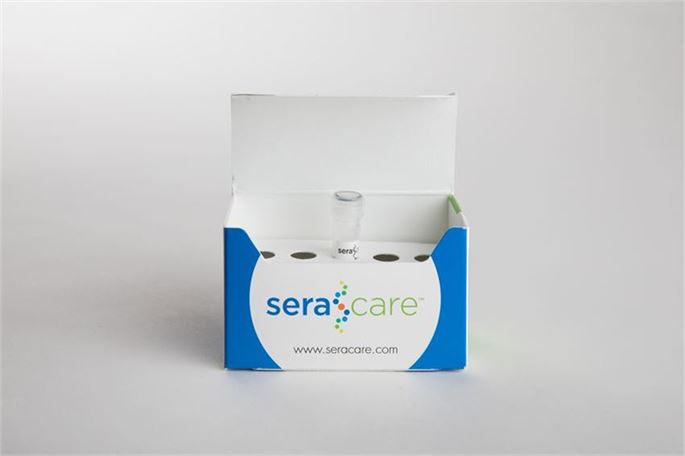Inherited Disease
Seraseq® FFPE BRCA1/2 LGR Reference Material
Details
Resources
Specifications
Frequently Asked Questions
Genetic testing of the tumor suppressor genes BRCA1 and BRCA2 allows for the identification of DNA variants which are associated with a significantly elevated lifetime risk of breast, ovarian, pancreatic and prostate cancer. Large genomic rearrangements (LGRs) include deletions, duplications and/or insertions often involving whole exons. Usually pathogenic, they have been reported to account for up to 27% of the overall BRCA11 and 5% of BRCA2 disease-causing mutations2 with a strong founder effect accounting for about 1/3rd of all disease diagnosis. Accurate detection of a BRCA1 or BRCA2 pathogenic variant has immense impact on clinical management of disease including patient’s eligibility for new PARP inhibitors. Thus, it is crucial to determine germline as well as somatic BRCA1/2 mutations in those patients3 and screening for large genomic rearrangements in both BRCA1 and BRCA2 is strongly recommended4. However, these LGRs are frequently missed by PCR-based methods and targeted NGS assays that do not detect partial or complete exon losses or gains. Given the difficulty in detecting LGRs, there is a need for a comprehensive BRCA1/2 testing algorithm including reference materials that incorporate pathogenic LGRs to support NGS assays that analyze for these mutations at both germline and somatic levels.
To help clinical labs performing NGS-based BRCA testing better, develop, characterize, validate, and routinely assess amplicon and hybrid capture-based targeted NGS assays, LGC Clinical Diagnostics has designed novel reference materials containing 20 pathogenic variants in a well-characterized genomic background (GM24385) at clinically relevant allele frequencies, precisely quantitated by digital PCR assays and analyzed by NGS.
These include 10 variants in BRCA1 and 10 variants in BRCA2 ranging in size from SNVs to insertions and/or deletions over 500 bp (11 exon-level large rearrangements), resulting in a variety of phenotypic alterations at the amino acid level, including missense, nonsense, frameshift, stop-gain/loss, splice-site, and insertion/deletion of partial or up to two exons (See Product Sheet).
Seraseq FFPE BRCA 1/2 LGR Reference Material
Seraseq FFPE BRCA 1/2 LGR Reference Material
Seraseq FFPE BRCA12 LGR Reference Material
Seraseq FFPE BRCA 1/2 LGR Reference Material
Seraseq FFPE Safety Data Sheet
Technical Spreadsheet for Seraseq BRCA 1/2 LGR Reference Materials
Solid Tumor FAQs
Review the common questions we receive from our customers and the responses we provide.



